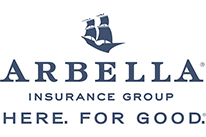Many people dream of starting a company and becoming their own boss. However, those who run a business, especially when it is small or medium-sized, know that the everyday running of a company comes with a lot of responsibility, uncertainty, and risk. Yet, for a lot of business owners, their business is the sole source of their income. This means that there is a lot at stake and even one setback could be detrimental.
This is where business owners insurance, also known as BOP (business owners policy) insurance, comes in. Making sure that your dream and livelihood are protected can be as easy as just picking out the right policy.


Business owners insurance protects against property and liability risks by bundling general liability insurance with commercial property insurance. BOP insurance typically combines the main policies at a cheaper price than the total cost of the individual coverages. It can be tailored to a business’ individual needs and is ideally suited for small and medium-sized businesses. Here are some examples of the types of businesses that benefit from it:
For people who own businesses such as restaurants, wholesaling, retail stores, and contractor businesses, BOP insurance is an especially important form of protection. These ventures usually come with a higher level of risk, which means their owners are more likely to face unexpected expenses at one point or another.
BOP insurance usually provides three main types of coverages:
In addition to the main policies listed above, business owners can opt-in for a range of additional coverages:

In regards to property protection, you will not be covered when damage is caused by earthquakes or flooding. To also have coverage in those situations, you would need event-specific insurance policies. Additionally, a BOP does not cover injuries to a business’ employees. They will need specific workers’ compensation insurance.
You might think that every business automatically qualifies for BOP insurance, but in reality, you also need to meet specific eligibility requirements. The criteria differ between insurance providers, but usually include business location, the size of the location, the business class, and total revenue:
If, for instance, some of the business is handled off-premise, then some insurance providers may refuse to issue a BOP. Additionally, the size of the business premise is also taken into consideration. Limits are placed upon business premises that are both too large and too small. That is why BOP insurance is typically only suitable for businesses like restaurants and retail shops – they naturally tend to meet each criterion.
As a general rule, businesses eligible for BOP insurance typically have fewer than 100 employees, make less than $1 million annually, and belong to a low-risk industry.

BOP insurance is designed to save you money in the event of a problematic situation, but you can also save money on the policy itself. There is a range of factors that goes into determining the price of BOP insurance. Follow these tips to lower your premiums:
Ready to protect your business or still have some unanswered questions? Send us an email and we will find the right insurance for your business.




